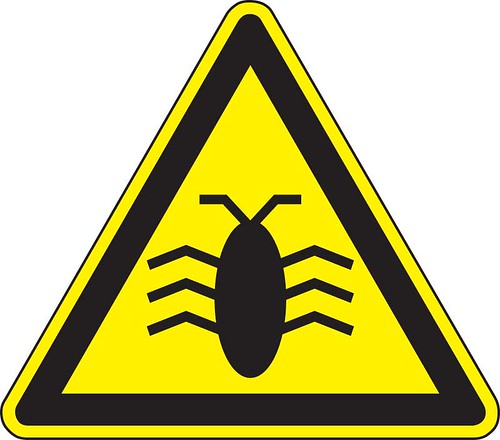Currently, I am heading the research in a packaging application, where I am expected to provide the functional requirements of the software and validate them with the industry for the appropriateness and automation. I am also associated with another Graphic Arts product for planning and imposition, where I collaborate and sometimes (by virtue of being 'the oldie') mentor the development along with a very young and enthusiastic team of 2 members. Our domain team is a small one, but one that is very highly motivated. The motto being to reach out to the needs of our product users, addressing their needs effectively.
Research - a story of Transcendence:
 by steeleman204
by steeleman204
Over the years that I have been associated with this activity 'RESEARCH', I started developing a consummate love for it. Now it has become my way of life. My identification, character and my personality. This love story is a story of transcendence.
Shifting from Production environment to Research environment:
I came into this R & D field from a production environment. To give a glimpse of my previous birth (yeah it seems a birth ago now - though it's been 5 years now),Productivity was the essence of a production environment. Time was the most sacred resource involved. Blasphemy is not to have achieved the daily numbers target. Quality was always the 'next' big thing. 'BOSS' was your yardstick. Your performance was measured solely in the 'opinion' of your yardstick. Regardless to say, your moods and satisfaction reflected your yardstick's. My pascal meter was touching an all-time high. Then the lid was taken off. A call from Chennai - seemed more like a life belt.
I joined this company India Metamation. Everything seemed to be surreal. Nice-straight talking-honest people around with a transparent, employee friendly environment. All of this came under a tag - 'R&D'. Little did I know then, it would become my avatar.
Research - as an activity:
The 'R' in this 'R & D', started off with being an activity - a task in my To-do list that was very specific to the issue I had to research on. More specifically, since my work deals with software development - a research was confined to a feature needed in the application. Putting it in a cruder fashion, research was about a button in the user interface - where to have it, what should it do - Period.
Commonly this activity was carried out with the help of a call and a peep. A phone call to the operator asking where he wants this and what all he wants to do with it. A peep into the competitors manual for improvising.
This was followed by a cute little research document. One describing the research - containing the conversation of the call and the screen shots of the competing product: 'fidelity' being the stand out attribute of the document. Care was taken not to give my personal opinion or judgment within this. It was truly an open document. The reader - the developer could build up on this further and interpret this the way he wanted to. But the research was done. My production mentality prevailed: a research done, a document submitted, a number shown.
The beginning of life: 'Am I missing something?'
Then the results of these - made me think about what was missing. The product was merely what was enough - what the customer expected. It matched the competing product. There was never any exclamation or a eye brow rise from anyone seeing the product. At this same time, I was also looking at some of the software products in other domains. Google was one of those that I watched closely - because it was one that I was using most. Every time, I saw a new release or a product update from them - I was astonished. Why? Because every time I got the new feature and used them, I felt like 'how could I live without this feature from now on'. They had sensed my mind - they had not asked what I had wanted, but they sensed it. This thought made me take up my research a level further.
Research - as a duty:
My next level was looking at Research as a duty. It was my official duty to think about what the user wants. My research began not by calling him or by peeping into a competitor's user manual - but by becoming a user, thinking how he thinks and seeing what he sees and finally sense what he wants. I still call up him and look at some competitor manuals - but that's certainly not the starting point but an additional rounding off activity to improvise.
I could see a marked change into my documents from then on. Even if I was not able to complete my research in a specific time, I was convinced to think that this research would yield a feature that is going to make life of a user easier and better. The features that resulted out of these research documents - truly reached out to the users. For a start - they acknowledged these. It was a lesson learnt. Also the time spent on this seemed worth every second of it, so my production mentality melted away.
Twist of life: Non-research tasks becoming mundane and a burden:
Amidst all of these, I was also doing other domain related activities such as testing, documentation and customer support. Because I had associated an intent in my research activities - that of sensing a need - it was a task that I began longing for. If there was a research topic in my daily kitty - it made up my day. The flip side to it was these other tasks started appearing mundane and looking unglamorous. They lacked the appeal and the high that a research task gave. As a result, the quality of my work in these areas waned. I was found lacking in these areas. Again this made me think. One day the realization struck - There was a research involved in these tasks as well.
Research - as a way of life:
I began to understand that any process, had methods and tools involved. That these methods and tools - when sensed, researched and refined - yielded maximum mileage.
For example this is what happened earlier when I wrote the user documents. I was merely worried with conveying the knowledge about the software to the user. I was constantly sweating over the usage of voices here. However later a minor change in perspective made me at ease with the documentation: Instead of communicating 'What I know about the software?' I had to communicate 'What does the user want to know about the software?'. I started seeing this document creation from the eyes of a new user. I started using tools available such as Google Docs for collaborative working - that made the approval process simpler. I started documenting FAQ's about screenshot capturing and voices in a commonly available location so that people could review and voice their opinions on it. This became a guideline knowledge source for the future. I was at peace with this method from that moment on.
There was a similar thing with testing. With testing I started creating testing procedures and also started classifying the categories of testing - that way I could quickly go through these and perform an effective testing. I also learnt that the key to testing is preparation, imagination and persevering execution.
To round it off, looking at each activity involved as research stems from a need of systematic analytical approach to an issue. The moment we decide to tag each activity as a Research activity - we start thinking about the methods and tools that can be used for & subsequently how we can improvise these methods and tools for better efficiency of the process. Also as a side effect, it made the process more enjoyable and lucrative.
And I was able to extend this realization to the other spheres of my life - personal included. That is any process or activity in life - has in it a potential research. It is up to one to sense this, address this and refine this - making the activity, one to look forward to and enjoy.
This has been my philosophy - research is life.
________________________________________________________________________
ALL THAT I LEARNT ABOUT RESEARCH
- Research Activity - Systematic Investigation with an open mind to generate new ideas or ways of doing things.
- Major steps involved:
- Identification of a research issue
- Literature review
- Specifying the purpose of research
- Data Collection
- Analyzing and interpreting the data
- Reporting and evaluating research
- Major steps involved:
- Researcher - A scientist who devotes himself to doing research
- Traits of a researcher:
- Patient
- Honest
- Curious
- Observant
- Organized
- Perseverant
- Enthusiastic
- You are good researcher:
- If you have a desire to contribute something original to the world
- If you are never satisfied by one or two sources & dig a little deeper to find the answers
- If you are able to extract relevant information from large amounts of information
- If you take in the (inevitable) rejection or disappointment {in terms of having your research data accepted and acknowledged} as fuel to make your research more complete
- Skills to develop:
- Analytical skills: Ability to apply logical thinking to gathering and analyzing information, designing and testing solutions to problems, and formulating plans.
- Communication skills: Asking pointed, well directed questions
- Documentation skills: Documenting clearly with known, doubtful and unknown areas
- Presentation skills: Presenting an unambiguous, clear picture of the research
- Traits of a researcher:
.png)












.png)
